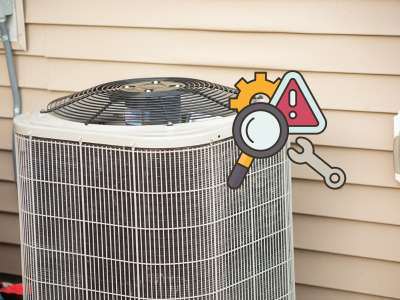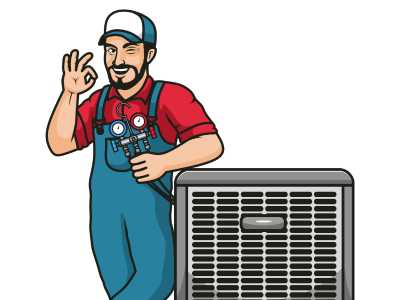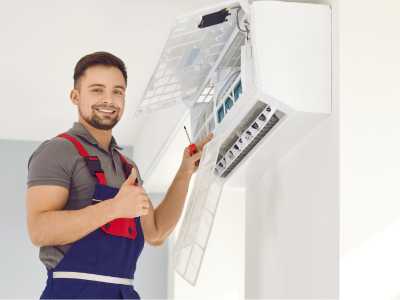HVAC systems are the unsung heroes of our homes, quietly maintaining our comfort. Yet, when issues arise, they can disrupt our daily lives and cause stress. Understanding common HVAC problems is the first step towards troubleshooting them. This knowledge can save you time, money, and prevent discomfort.
In this guide, we’ll explore common HVAC issues and provide practical solutions. We’ll also share tips on maintaining your system to prevent future problems. Whether you’re a DIY enthusiast or a homeowner seeking knowledge, this guide will be a valuable resource. Let’s dive in and demystify HVAC troubleshooting.
Understanding Your HVAC System
HVAC stands for Heating, Ventilation, and Air Conditioning. It’s a system that controls the temperature, humidity, and air quality in your home. Understanding how your HVAC system works can help you identify potential issues. It can also guide you in performing basic maintenance tasks. This knowledge is key to ensuring your system operates efficiently and lasts longer.

Recognizing Common HVAC Problems
Recognizing common HVAC problems is the first step towards troubleshooting. Some issues are easy to spot, while others require a keen eye. For instance, if your HVAC system is not heating or cooling your home properly, there might be a problem. Other signs include unusual noises, foul odors, and sudden spikes in your energy bills.
Here are some common HVAC problems you might encounter:
- Thermostat troubles
- Dirty and clogged filters
- Airflow issues and duct obstructions
- Refrigerant leaks and levels
- Mechanical wear and tear
- Electrical components and controls
- Condensate drainage problems
Thermostat Troubles
The thermostat is the control center of your HVAC system. If it’s not working properly, your entire system can be affected. A faulty thermostat can cause your HVAC system to run continuously or not run at all. If you notice such issues, it’s time to check your thermostat.
Dirty and Clogged Filters
Dirty and clogged filters can restrict airflow in your HVAC system. This can lead to inefficient heating or cooling and higher energy bills. Regularly checking and replacing your filters can help maintain your system’s efficiency. It can also improve the air quality in your home.
Airflow Issues and Duct Obstructions
Airflow issues can be caused by blocked vents or duct obstructions. These can lead to uneven heating or cooling in your home. Regularly inspecting and cleaning your vents and ductwork can help prevent these issues. It can also improve your system’s overall performance.
Refrigerant Leaks and Levels
Refrigerant is essential for your HVAC system’s cooling process. If there’s a leak or the refrigerant level is low, your system may not cool properly. Identifying and fixing refrigerant leaks is crucial for maintaining your system’s efficiency. It’s also important for preventing potential environmental harm.
Mechanical Wear and Tear
Over time, the mechanical components of your HVAC system can wear out. This can lead to various issues, including unusual noises and reduced efficiency. Regular maintenance can help identify and address mechanical wear and tear. It can also extend the lifespan of your HVAC system.
Electrical Components and Controls
Electrical issues can cause your HVAC system to malfunction or stop working altogether. These can include tripped breakers, blown fuses, or faulty wiring. Regularly checking your system’s electrical components can help prevent these issues. It can also ensure your system operates safely.
Condensate Drainage Problems
Your HVAC system produces condensation during its operation. If the condensate drain line is clogged, it can cause water damage in your home. Regularly checking and cleaning your condensate drain line can prevent these issues. It can also help maintain your system’s efficiency.

DIY HVAC Solutions and When to Call a Professional
While some HVAC issues can be fixed with simple DIY solutions, others require professional help. Knowing the difference can save you time and money. DIY solutions can be effective for simple issues like thermostat troubles or dirty filters. However, complex problems like refrigerant leaks or electrical issues should be left to professionals. Remember, safety should always be your top priority. If you’re unsure about a repair, it’s best to call a professional.
Simple Fixes You Can Do Yourself
There are several simple fixes you can do yourself to address common HVAC problems. These include replacing your air filters, checking your thermostat settings, and clearing obstructions from your vents.
Here are some DIY solutions for common HVAC problems:
- Check and replace your air filters regularly.
- Ensure your thermostat is set to the correct mode and temperature.
- Clear any obstructions from your vents and ductwork.
Signs You Need Professional HVAC Help
While DIY solutions can fix some issues, there are signs that you need professional help. These include persistent problems, complex issues, and situations where safety is a concern. For instance, if your HVAC system is still not working properly after trying DIY solutions, it’s time to call a professional. Similarly, if you’re dealing with refrigerant leaks, electrical issues, or mechanical failures, professional help is necessary. Remember, attempting to fix complex HVAC problems yourself can be dangerous and may lead to more costly repairs in the future.

Preventative Measures and Regular Maintenance
Preventative measures and regular maintenance are key to avoiding common HVAC problems. By keeping your system in good shape, you can ensure its efficiency and longevity. Regular maintenance includes tasks like changing filters, cleaning ducts, and checking system controls. It’s also important to have your system professionally inspected at least once a year.
Here are some preventative measures to consider:
- Regularly replace or clean your air filters.
- Keep your outdoor unit clear of debris.
- Schedule professional inspections and tune-ups.
Seasonal Maintenance Checklist
Seasonal maintenance is also crucial for your HVAC system’s health. Different seasons can put different strains on your system, so it’s important to adjust your maintenance routine accordingly. In the spring and fall, for instance, you should check your system’s refrigerant levels and clean your outdoor unit. In the winter, you should inspect your heating components and ensure your system is ready for the cold.Here’s a basic seasonal maintenance checklist:
- Spring: Check refrigerant levels, clean outdoor unit, and replace filters.
- Summer: Check thermostat settings, clean and inspect cooling components.
- Fall: Inspect heating components, clean and adjust dampers.
- Winter: Check thermostat settings, inspect heating components, and replace filters.
Conclusion: Ensuring HVAC Health
In conclusion, understanding common HVAC problems and their solutions is crucial for maintaining a comfortable home environment. Regular maintenance, timely troubleshooting, and knowing when to call a professional can help ensure the health of your HVAC system. Remember, a well-maintained HVAC system is key to energy efficiency and longevity.
Engle Services offers HVAC unit installation, HVAC unit repair, and HVAC maintenance in Sylacauga, Talladega, Birmingham, Shelby County (Hoover, Chelsea), Alabaster, Pell City, Dadeville, Wetumpka, Montgomery, Fort Walton Beach (Florida) and all their surrounding areas.
Ready to schedule with our team of HVAC Technicians, Electricians, and Plumbers?
Schedule an appointment online or give us a call at (855) GET-ENGLE
